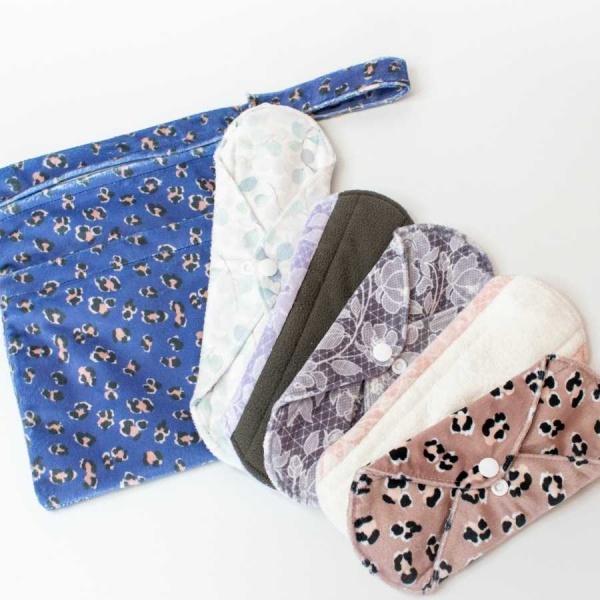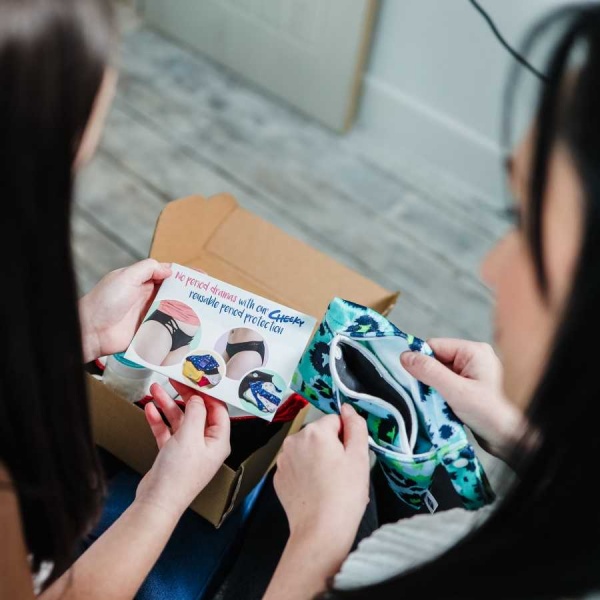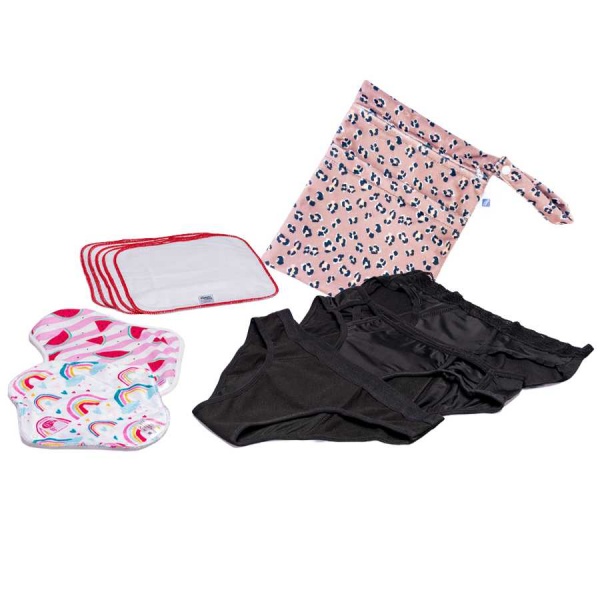What Does a Normal Period Look Like?
If you've ever wondered whether your menstrual cycle is "normal," you're definitely not alone.
And it's one of those weird things which isn't always discussed openly. It's also why things like endometriosis go undiagnosed for so long as people have nothing to compare to.
Understanding what's typical can be a bit of a puzzle since everyone is so different and that's fine. But don't worry, we're here to delve a little deeper into the mysteries of menstruation together.
Even though each person's period can vary widely due to factors like age, hormonal shifts, lifestyle habits, and overall health, there are a few common aspects that most of us share.
Let's explore what a typical period might look like and when you might want to consult your GP.

How Your Period Varies In Colour
The colour of menstrual blood can range quite a bit and it’s actually a good indicator of your health! we've got a whole blog post on our sister site, Cheeky Pants, about the colour of your period blood.
Fresh blood is often bright red and seen at the start of your period. This is your body saying, "Everything’s flowing smoothly!"
As your period progresses, the blood may darken to a dark red or brown, which simply means it has taken its time leaving your body. Totally normal, but always good to keep an eye on.
You can even have pinkish blood if the blood has combined with cervical mucus. Or black, right at the end or start of your period which is usually just older blood. If that sounds disconcerting, remember when you used to get scabs on your knee which would look blackish after a few days? Similar thing!
How Long Are We Talking?
Well, most menstrual periods last between three to seven days, but this can vary from person to person and period to period.
And that's just the part of your menstrual cycle where you're bleeding. In total your menstrual cycle can be anywhere from 21 days to 35 days. The period blood loss is when our body sheds the built up uterine lining which had been prepared previously to accept a fertilised egg via your fallopian tube.
The lining of your uterus and uterine wall thickens during the latter 14 days of your cycle and this lining is shed during the first 7 days roughly, your period.
As with everything, this varies from person to person. Anyone on birth control pills, the hormonal coil, patch or insert may have much lighter periods - if they have them at all!
On the other hand, women living with hormonal imbalances, polycystic ovary syndrome (pcos) or endometriosis may find that their periods are longer.
If your periods are regularly more than 7 days long, it's definitely worth contacting your GP.
Flow: From Trickles to Torrents
Oh, the ebb and flow of period life!
Generally, your period flow will start light, pick up to what feels like a flood, maybe accompanied by some clotting (hello, day two or three!), and then gradually taper off.
This is normal, but the amount can vary dramatically from one person to another. One persons 'heavy flow' can be 'light' for another, it's so subjective!
That’s why products like Cheeky’s range of period protection are lifesavers, replacing pads or tampons with comfortable reusable period protection which covers every type of flow from the lightest to the heaviest days.
Abnormal periods in terms of flow are if you're soaking through a heavy flow tampon or pad every hour for several hours. See your GP if this is you!
What do normal period clots look like?
Seeing clots in your menstrual flow can be startling, but small clots are pretty normal. They're part of how your body prevents too much blood from flowing out.
Period clots are coagulated menstrual tissue and blood. Your body produces blood thinners (anticoagulants) during your period to allow your shedding uterine lining to easily pass through your cervix.
If you have heavy menstrual bleeding, your body can't keep up and clots are formed to try and stem the flow and control the bleeding. Large clots (bigger than a 10p) are a sign of heavy periods but can also be a sign of uterine fibroids.
If this is you, again, see your GP. Kirstin on our team has super heavy periods and has found tranexemic acid to be helpful, so ask your GP about this.
Cycle Symptoms: What’s Normal?
Besides bleeding, your body might give you a heads-up that your period is coming through symptoms like cramps, breast tenderness, mood swings, and bloating. These are all part of the menstrual package. However, if these symptoms start to interfere with your daily life, it's worth a call to your GP.
Understanding your menstrual cycle is a key part of looking after yourself. 'Normal' varies from person to person, and your period can tell you a lot about your overall health. Stay tuned to your body’s signals and don’t hesitate to seek advice if something just doesn't feel right.
Recommended Period Products for First Timers
If you're thinking of trying reusable period products, check out our detailed guides and product reviews on Cheeky Wipes Blog, or drop us a line. If you've got any further questions at all, please do contact us. The team all use the products themselves and love to chat pee, poo and periods all day long! We've also got some further reading that you may be interested in:
- Which period pants or pads are best for endometriosis?
- Endometriosis awareness month with The Fanny Diaries
- The ultimate guide to having sex on your period
- Period pants for heavy periods, the lowdown
- Does travelling affect your period
- How to help your child with their first period
About the Author: Helen Rankin founded Cheeky Wipes, the original reusable wipes kit back in 2008 after disposable wipes caused her eczema to flare up. 4 kids later, she went on to develop their range of 'Simple Reusables' to include period pants, reusable period kits and kids incontinence pants. Both she and the rest of the leadership team are now navigating menopause, with all the joys it brings!
The Company was recognised for their hard work in developing environmentally friendly products with the Queens Award in Enterprise for Sustainable Development in 2021.

.jpg)
.jpg)
.jpg)
.jpg)
.jpg)

.jpg)
.jpg)
.jpg)
